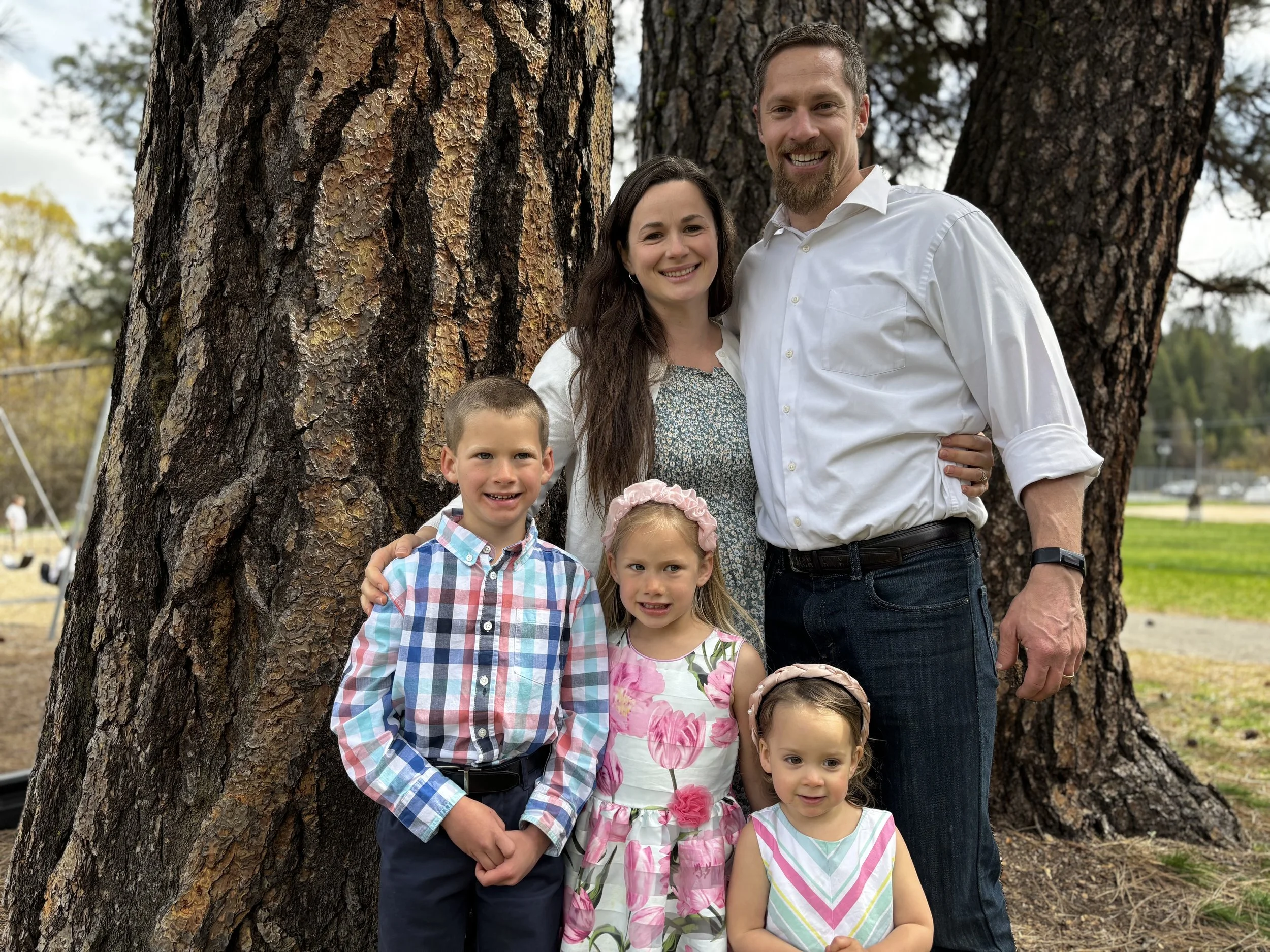Elder Election
Sean Bohnet
Sean moved his family to Moscow in 2019 from West Texas. He and Rachel have been married since 2016 and have two children: January (born in April) and August (born in January). They also take care of Sean’s disabled mother, Janet. Sean is the owner and operator of Bohnet Music Academy, which teaches music lessons locally and online. Rachel serves the family by taking care of the souls at home and the house itself. She is also a gifted basketball player and barista.
Zach Browning
Zach grew up in Moscow. After college he spent 7 years in Alaska where he met and married his wife Rachel. Zach and Rachel have three children: Boaz, Liberty and Ida. Zach works as a drilling engineer and is finishing his final year as a Greyfriars student under the elders of Christ Church. He has served Christ the Redeemer Church since it was first planted as a service of Christ Church.


